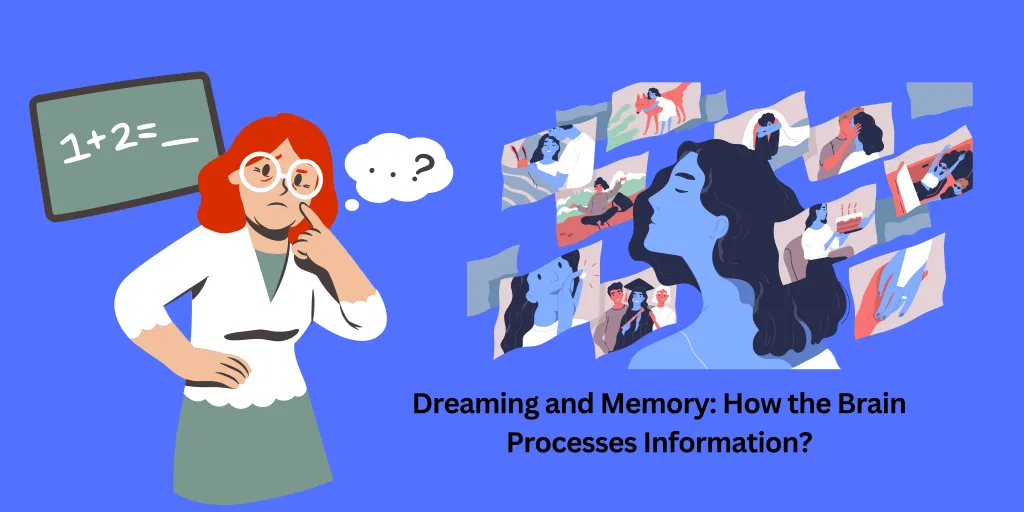
Have you ever wondered what a dream meant when you awoke? Though they can be enigmatic and fascinating, did you realize that dreams are truly linked to memories?
You can learn more about yourself and how your memories affect who you are by unraveling the mysteries of your dreams.
The Science of Dreams
How Do Dreams Function?
A collection of thoughts, images, and experiences that occur while you sleep comprise your dreams. They can be short or long, intense or diffuse, crisp or blurry.
As someone is sleeping, they experience the Rapid Eye Movement (REM) stage of sleep, which is characterized by rapid eye movement, increased brain activity, and muscle immobility.
Why Do Dreams Exist?
Whilst many believe dreams are crucial for the consolidation of memories, experts are still unsure about the purpose of dreams.
While you sleep, the brain organizes and solidifies memories, storing them in long-term memory. Dreams are a possible outcome of this process, providing the brain with a way to blend recent and distant memories.
Different Dreams
Dreams can be divided into several distinct categories, including:
1. Lucid Dreams
Dreams known as lucid dreams occur when the dreamer is conscious of their sleeping state. “Waking up in a dream” is another name for lucid dreaming.
2. Nightmares
People frequently experience frightening or distressing dreams known as nightmares.
3. Recurring Dreams
Dreams that keep happening over and over again are known as recurring dreams.
4. False Awakening Dreams
False awakening dreams occur when a dreamer thinks they have woken up only to discover they are still asleep. The dreamer is unaware that they are still dreaming during these dreams.
5. Prophetic dreams
A dream that contains information that can be used to foretell the future is referred to as a “prophetic dream.
6. Epic dreams
Epic dreams are distinguished from other types of dreams by the vividness of their imagery, the length of time they last, and the incorporation of a narrative or story into the dream.
The Science of Memory
What is memory?
Memory is the process by which information in the brain is encoded, saved, and retrieved.
Memories can be kept for a short period of time or for a very long period of time, and they can be influenced by a variety of factors such as emotions, experiences, and repetitive behaviors.
What Is the Purpose of Memory?
Memory gives us the ability to learn, adapt, and make decisions based on prior experiences. Without memory, we couldn’t learn from our mistakes or build on our successes.
Types of Memory
Memory can be split down into two basic categories, which are short-term memory and long-term memory.
1. Short-term Memory
The ability of the human brain to retain knowledge for only briefly, often between 20 and 30 seconds, is referred to as “short-term memory”.
2. Long-Term Memory
It is believed that information is held in long-term memory if it is kept there for an extended period of time, which can range from a few days to a number of years.
Consolidation of the Memories
The process of moving memories from short-term to long-term storage is referred to as the consolidation of memories.
While we sleep, our brains playback the experiences of the day and work to consolidate those memories. This process takes place throughout sleep.
How Are Dreams And Memory Related?
Sleep’s Role in Memory Consolidation
Studies have demonstrated that sleep is essential for memory consolidation and that those who are sleep deprived have trouble retaining memories.
The brain consolidates and reviews daytime memories as you sleep, allowing for the blending of fresh memories with old ones.
Dreams and Memory Retrieval
Some researchers think that dreams are a result of the memory consolidation process, giving the brain a means to combine new and old memories.
Important memories may be strengthened by dreams, making them less likely to be forgotten.
Dreams’ Effects on Memory
According to studies, dreaming enhances memory function. In one study, individuals who were asked to dream about a specific task outperformed those who weren’t given the same instructions.
The relationship between dreams and memory doesn’t end there though – studies have also found that dreaming can help improve our ability to remember facts and figures too!
When people were asked to memorize lists of words after either sleeping or staying awake overnight, those who slept showed better recall than those who stayed up all night – suggesting that dreaming plays an important role in consolidating newly acquired knowledge into long-term storage for future use!
How Can Dreams Improve Memory and Learning?
Recent research suggests that dreams can actually help to improve memory recall.
Studies have found that people who dream about a particular event or task are more likely to remember it than those who don’t dream about it at all.
This could be because dreaming helps to consolidate memories in the brain, making them easier to access when needed later on in life.
In addition, there is evidence that suggests dreaming may also play a role in problem-solving skills as well as creativity.
Dreams allow us to explore different scenarios without any real-world consequences – something which can be incredibly helpful when coming up with innovative solutions or ideas for projects!
What Can We Learn From Our Dreams About our Past?
Dreams can be a powerful tool to help us understand our past. They can provide insight into our deepest thoughts and feelings, as well as offer clues about unresolved issues from the past.
Dreams are often symbolic and may contain elements of memories that we have forgotten or repressed.
If you dream about an old friend
If you dream about an old friend who has passed away, it could indicate unresolved emotions related to their death or other events in your shared history together.
If you dream about a place from childhood
If you dream about a place from childhood that is no longer around today – such as an old school or home – this could signify a nostalgia for simpler times or remind us of how much things have changed over time.
In addition to helping us remember forgotten moments from the past, dreams can also reveal patterns in our behavior that may need addressing so we don’t repeat them again in future situations.
If you keep on having nightmares
If we keep having nightmares where someone is chasing after us even though there isn’t any immediate danger, then this could signify a fear of commitment.
Which needs exploring further with professional help before it becomes too overwhelming for us to handle on our own terms later the line!
Where does memory consolidation occur?
One of the key components of memory consolidation is the hippocampus. The conversion of short-term memories into long-term memories is also assumed to occur in this region of the brain, which is also known to be involved in dreaming.
The hippocampus communicates with several regions of the brain when you sleep, including the amygdala, which manages emotions and moods.
Research demonstrates that dreams may encourage the growth of stronger neural connections between different brain regions, improving memory consolidation and recall.
What does it mean when you dream of a memory?
Dreaming about memory could indicate that the brain is attempting to process and consolidate information from that specific memory into long-term storage for future use.
It could also imply that the dreamer is still dealing with unresolved emotions or issues related to the memory and that the dream is providing an opportunity to work through them.
When you dream of a memory, it is important to pause and reflect on what was going on at the time and how it may be affecting your life today. This can provide valuable insight and enable us to make positive changes in our lives.
Can dreams assist us in remembering?
Yes, dreams can help us remember lost memories and historical occurrences.
Our brain is actively striving to put significant information from the day into long-term memory while we dream, making it simpler for us to recall the specifics later.
Also, studies show that those who recollect their dreams can retain details from the previous day better.
As a result, by paying attention to our dreams, we may be able to access memories that would otherwise be challenging to recall and apply them to our future.
Final thoughts
Overall, dreaming provides valuable insights into both ourselves and those around us; allowing for greater self-awareness while also giving clarity on difficult topics like grief & loss which might otherwise remain unspoken between people close by each other’s side!
So next time when something strange pops up during sleep – take note because chances are high it holds some kind of message waiting patiently just beneath its surface…







